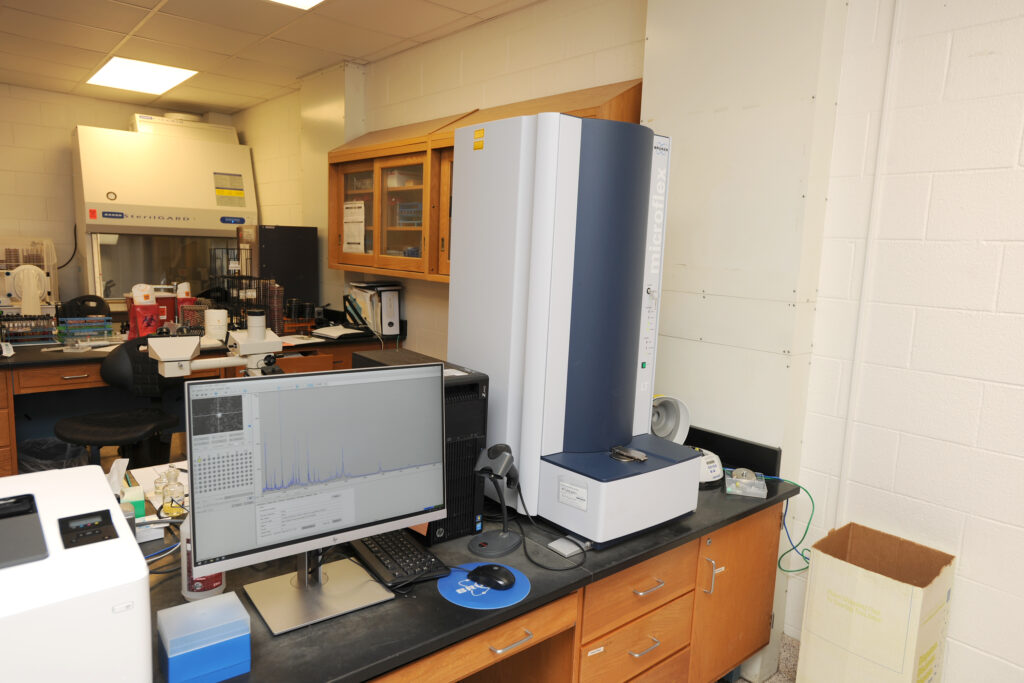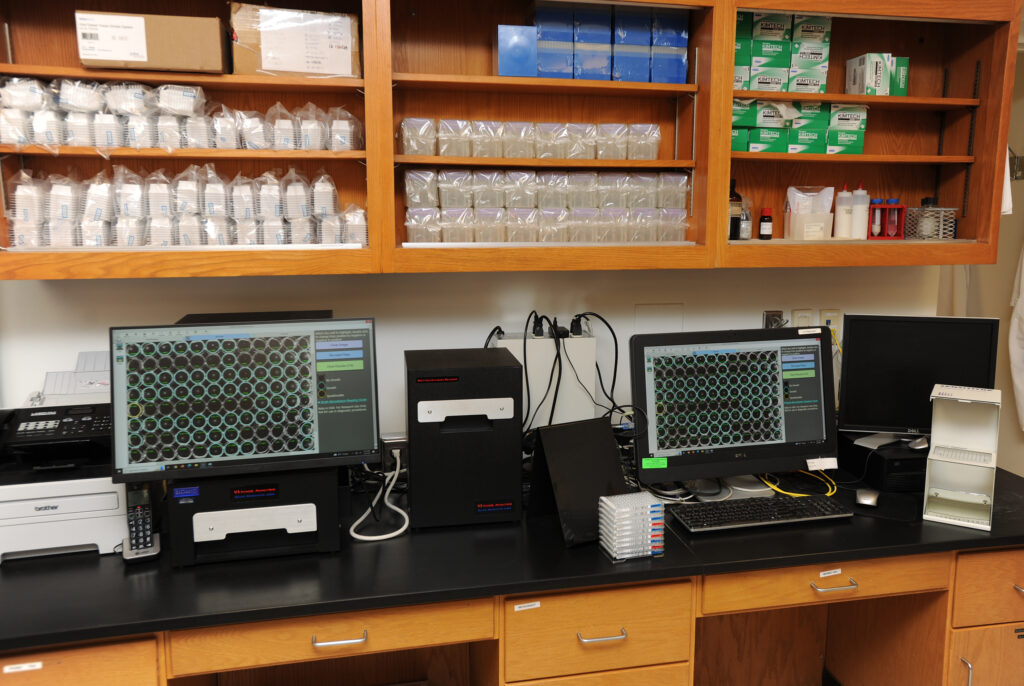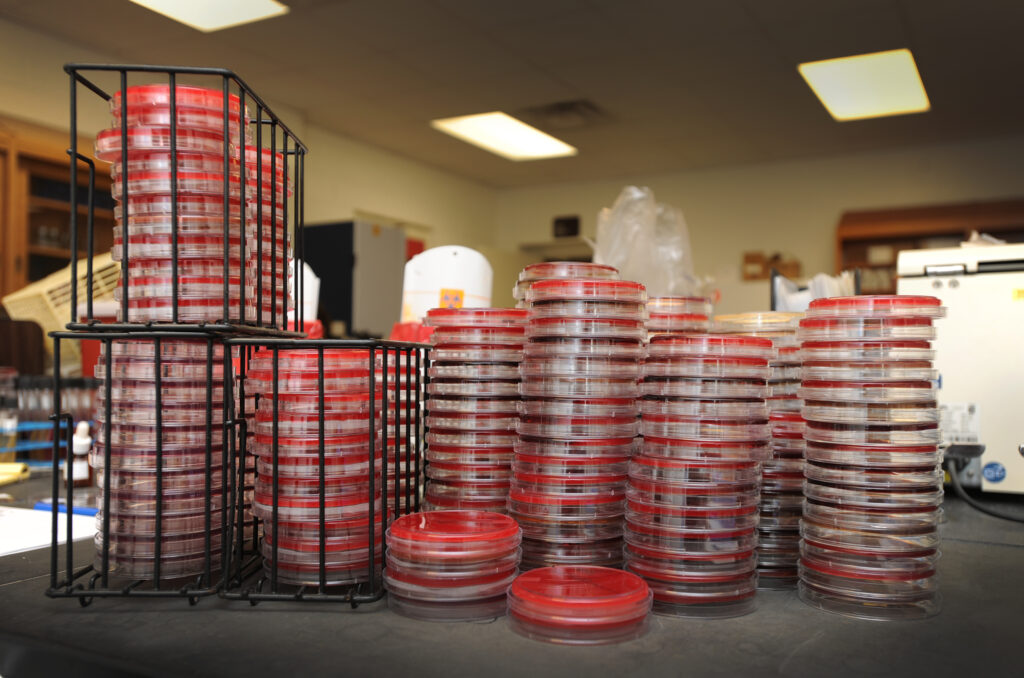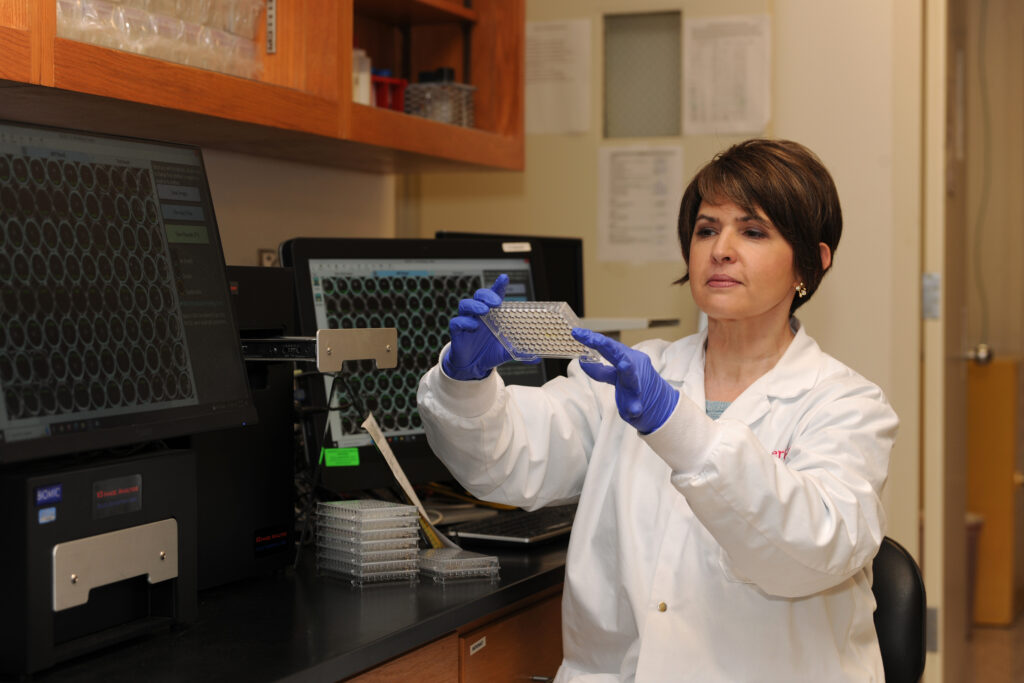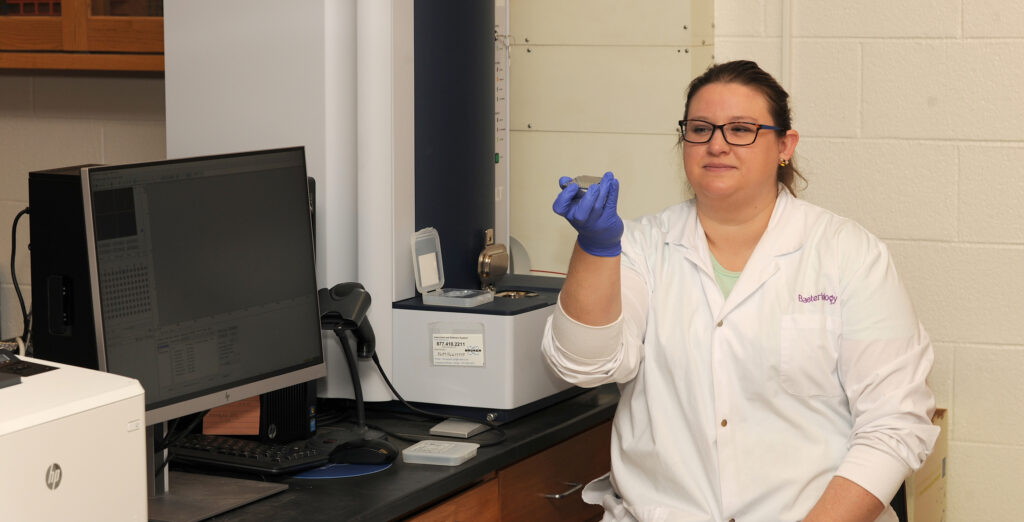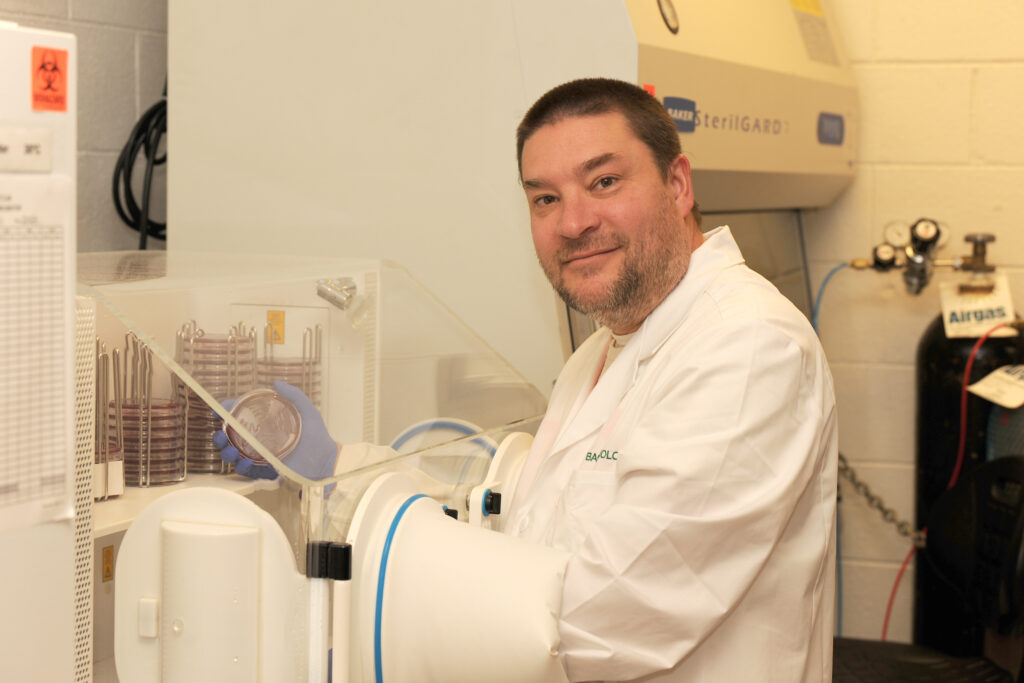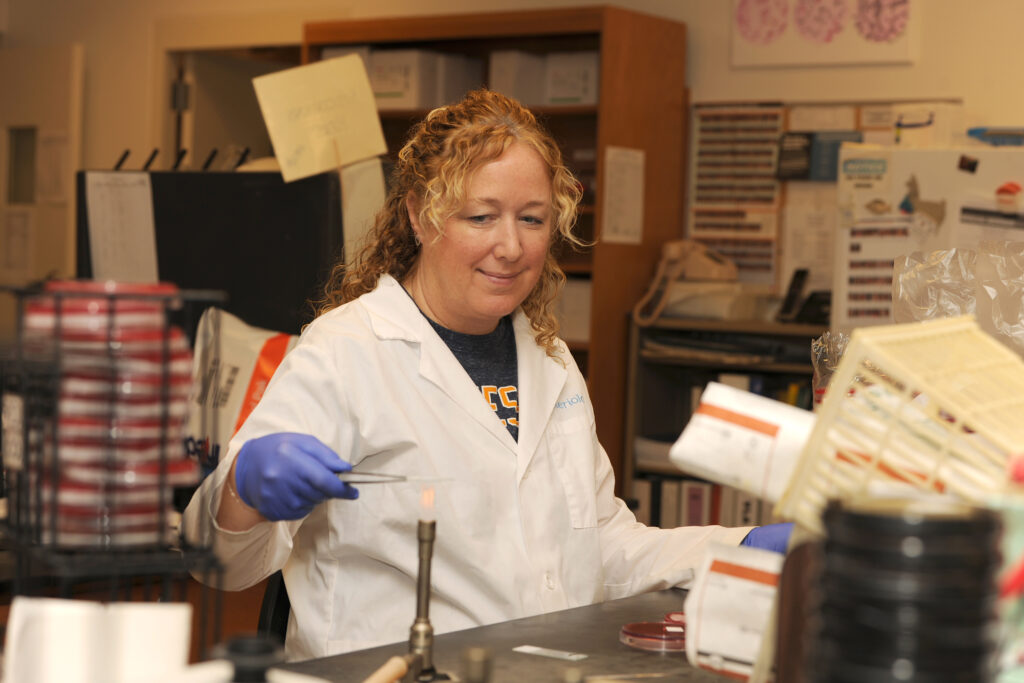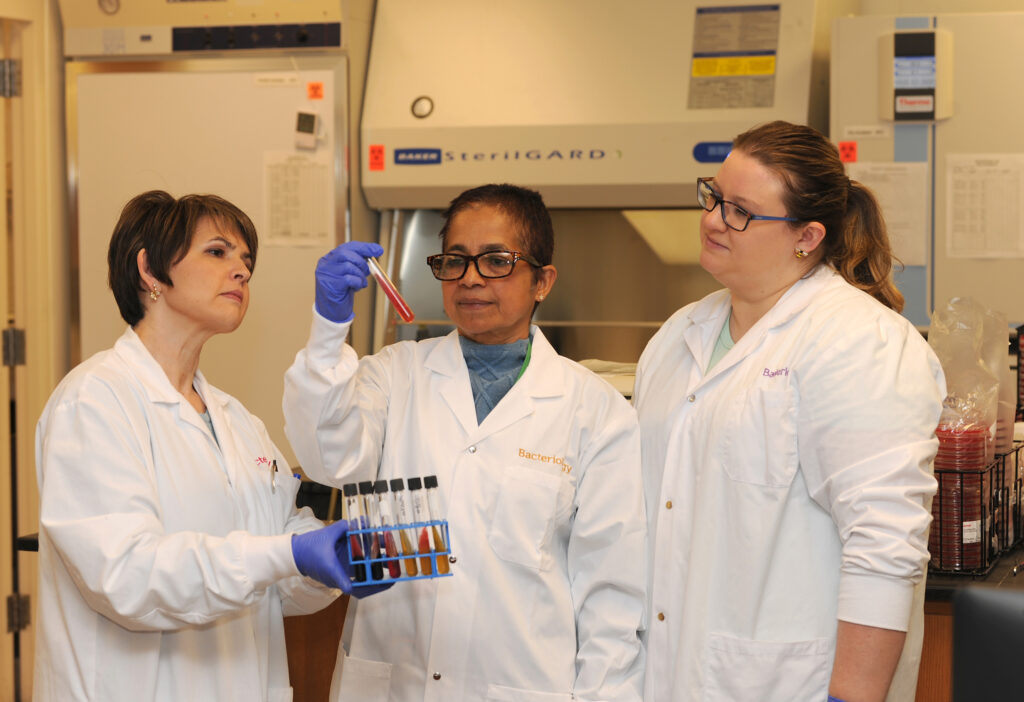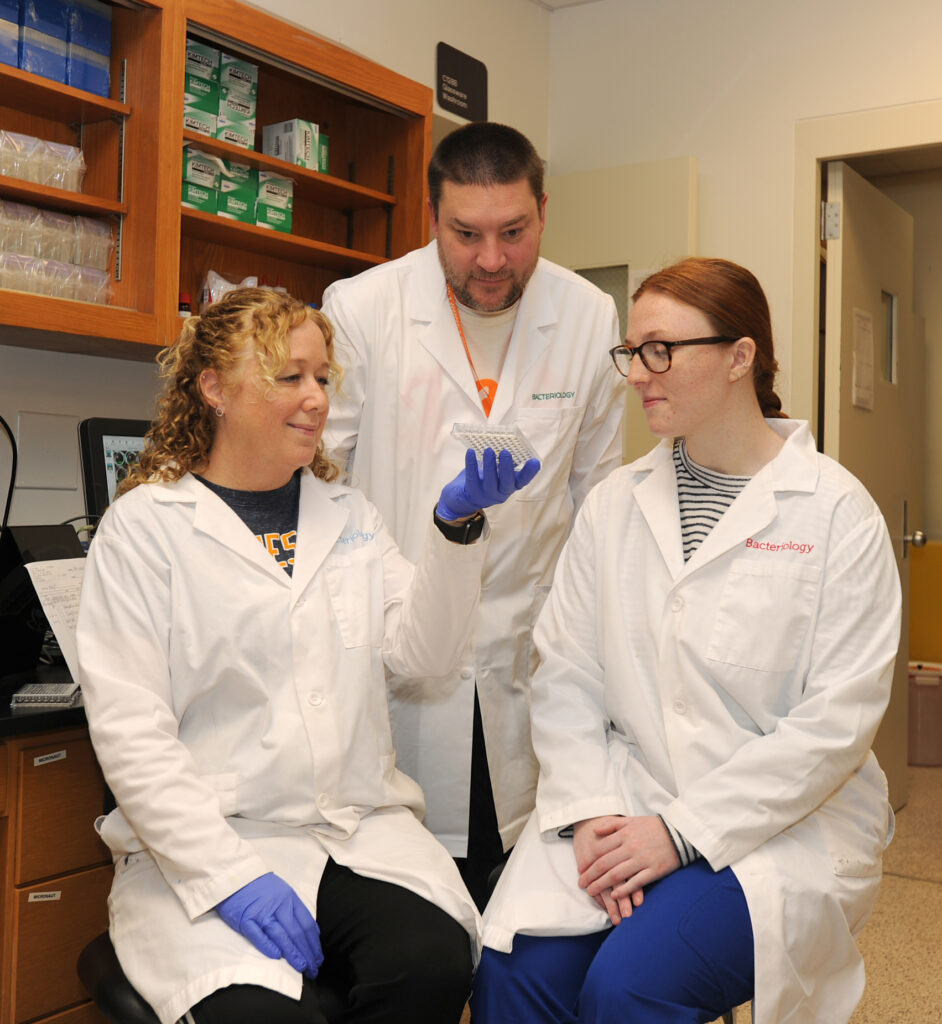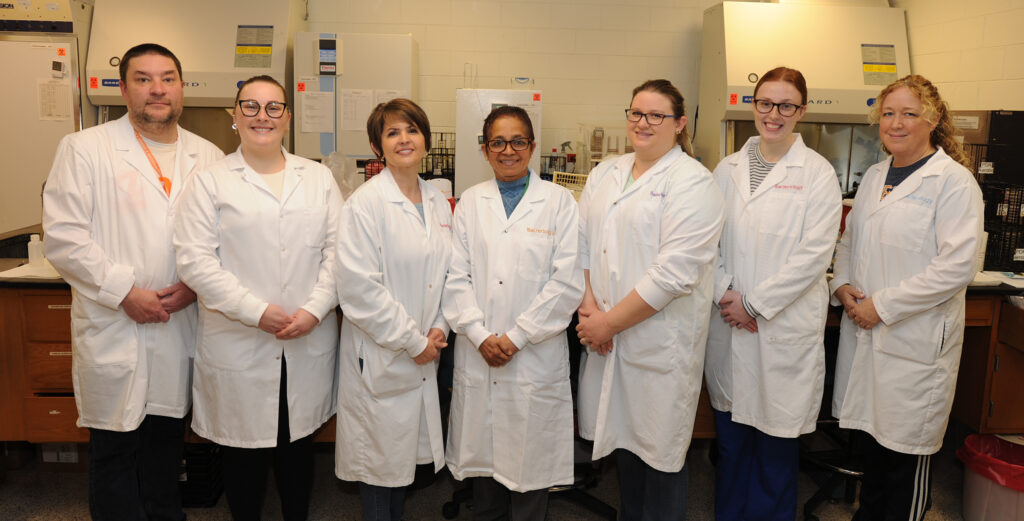
The mission of the Bacteriology and Mycology laboratory is to assist veterinarians and animal owners in providing optimal health care for animals by identifying the bacterial and fungal pathogens causing disease. During this process our laboratory attempts to isolate and identify those organisms associated with infectious processes as quickly and accurately as possible. Antimicrobial susceptibility testing is performed on those isolates that easily grow in the laboratory to assist in treatment decisions. We utilize both traditional and molecular methods based on the pathogen of interest such a Matrix-Assisted Laser Desorption Ionization-Time of Flight Mass Spectrometer (MALDI-TOF) and PCR and sequencing to quickly identify bacterial and fungal species. We also have a state of the art one stop laboratory that performs diagnostic tests for Leptospira, a zoonotic pathogen that can cause life threatening disease in animals.
Many special cultures and panels (see the list) are available to help practitioners.
Bacteriology & Mycology Submission Form
We are here to help!
General Specimen Collection and Submission Guidelines (PDF)
Telephone/Email
- Fax: 865-946-1788*
- Phone: 865-974-5639*
- Email: bacteriology@utk.edu
Hours
- 8:00 AM – 5:00 PM (EST)
- Monday – Friday
- * The lab operates with limited staffing on Saturdays, and on university administrative closing days.
Shipping Address
- University of Tennessee College of Veterinary Medicine
- Clinical Bacteriology and Mycology Laboratory
- 2407 River Drive, Rm C-121
- Knoxville, TN 37996-4543
Submission information
- Specimen type/Collection information can be found in our Diagnostic Laboratory Service Manual
- In general, swabs are the least preferred samples for culture purposes; aspirates, fluids and solid tissue samples are best. Aseptically prepare cutaneous collection sites with a quick acting and tissue penetrating antiseptic, povidone-iodine, followed by a 70% alcohol swab/wipe. Avoid use of chlorhexidine or benzalkonium chloride for this purpose, especially from multiuse containers, as they may become contaminated.
- Short-term refrigeration is acceptable until samples can be delivered to the lab. Those that do not survive freezing or refrigeration well include some anaerobes, fastidious respiratory pathogens, zygomycetes, and Pythium insidiosum.
